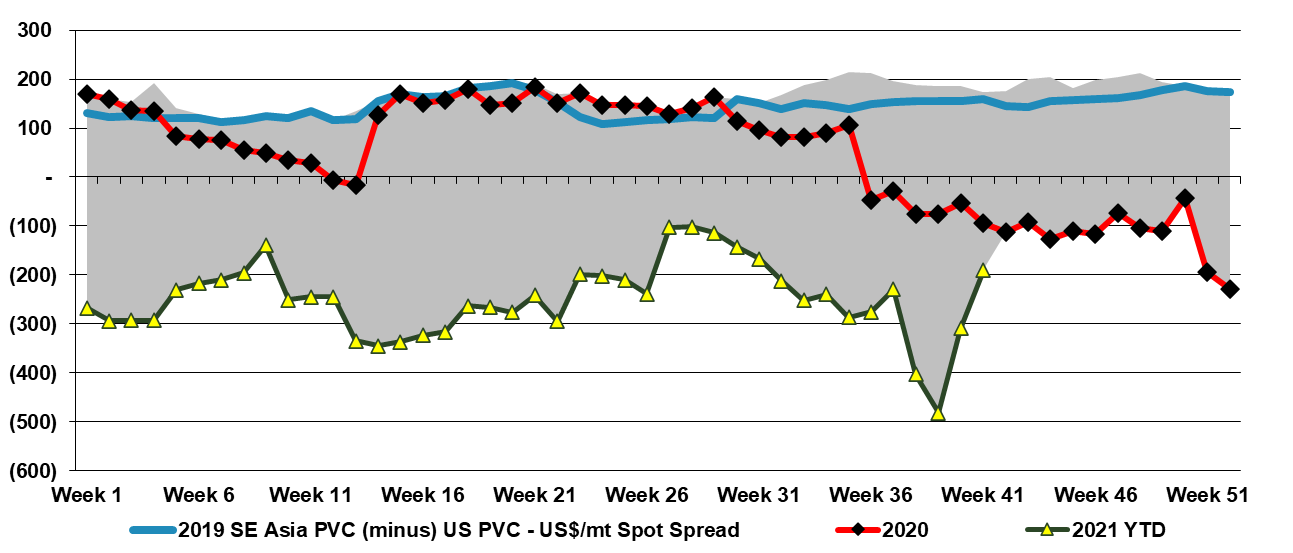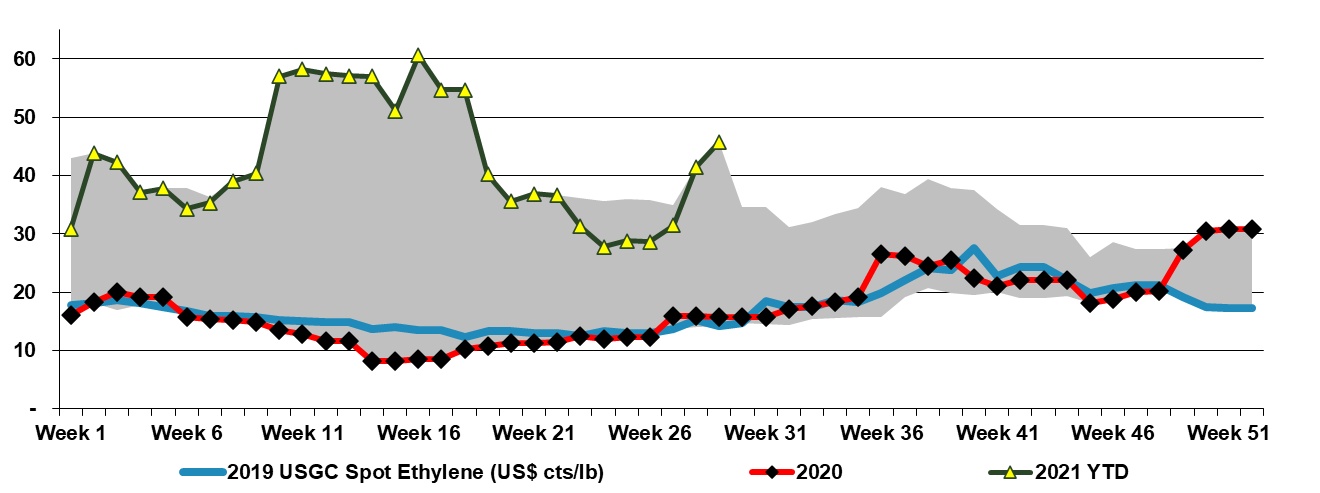With the rapid rise in energy prices, we are seeing price increase announcements for many intermediate chemicals, especially in regions of the world where margins were already very slim. The energy inflation issue is hard to call, with more and more commentators suggesting that it could be prolonged (which generally means it will be short), but lots of dislocations support duration. We would certainly be pushing prices today on the back of energy costs that could move higher again, and given that many chemical and polymer buyers have price protection in their contracts (for at least a month), producers could face a margin squeeze and an uphill climb to get adequate price coverage. Seasonally, demand for chemicals and polymers is at its weakest for the next couple of months, so the price hikes may be difficult. However, because of supply chain constraints, buyers may feel less confident and concede more easily. We could see a significant swing in sentiment from the chemical companies on 3Q earnings calls over the coming weeks as they talk about how good results were in 3Q but throw up all sorts of cautionary statements concerning 4Q.
Higher Global Energy Costs - A Real Problem For Most
Oct 12, 2021 3:07:57 PM / by Cooley May posted in Chemicals, Polymers, PVC, Ethylene, Energy, natural gas, Westlake, PVC producer, energy inflation, Occidental, Formosa, Shintech, Olin
US Ethylene: A Slight Imbalance Drives Significant Volatility
Jul 13, 2021 12:52:23 PM / by Cooley May posted in Chemicals, Ethylene, Ethylene Price, US ethylene surplus, Westlake, derivative prices, PVC producer
Spot prices for ethylene have surged in the US in the last week (chart below) – especially for delivery to Louisiana, where Westlake has a production outage. The price increase has completely removed the brief export arbitrage to Asia that lasted for a few weeks in late May and early June (Exhibit 5 in today's daily report). As we discussed on Sunday, ethylene is in a very wide no-mans-land in the US as it is not in sufficient surplus to drive pricing down to costs, and would likely be supported well above US costs and more by Asia costs in the current market, but if the market becomes short, buyers can pay a lot more for it as derivative prices are so high. If a PVC producer, such as Westlake, is buying, they can afford to pay significant premiums given that ethylene is less than 50% of the PVC molecule.



